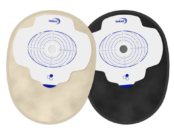Diet Fiber: An In-depth Look at its Types, Benefits, and Historical Significance

Diet Fiber: An Essential Component of a Healthy Lifestyle
Introduction:

In today’s fast-paced world, maintaining a healthy lifestyle has become more important than ever. One key aspect of a healthy diet is the consumption of diet fiber. Diet fiber, also known as dietary fiber, plays a crucial role in maintaining a healthy digestive system and promoting overall well-being. In this comprehensive article, we will delve into the world of diet fiber, exploring its different types, benefits, and historical significance.
Understanding Diet Fiber: What it is and its Types
Diet fiber refers to the indigestible plant material found in various food sources. It is classified into two main types: soluble and insoluble fiber. Soluble fiber dissolves in water, forming a gel-like substance that helps regulate blood sugar levels, lower cholesterol, and promote a feeling of fullness. Some popular sources of soluble fiber include oats, beans, apples, and oranges.
On the other hand, insoluble fiber adds bulk to the stool and aids in regular bowel movements, preventing constipation. It can be found in whole grains, vegetables, and nuts. Both types of fiber are essential for maintaining a healthy digestive system.
The Quantitative Measure of Diet Fiber
When it comes to measuring diet fiber, two commonly used metrics are total dietary fiber (TDF) and soluble dietary fiber (SDF). TDF measures the entire fiber content contained in a particular food, including both soluble and insoluble fibers. On the other hand, SDF focuses solely on the soluble fiber content. These measurements help individuals make informed decisions about their fiber intake to meet daily recommended values.
Exploring the Differences Between Diet Fiber Types
While both soluble and insoluble fibers are beneficial for our health, they differ in their functions and effects. Soluble fiber has been known to help regulate blood sugar levels by slowing down carbohydrate digestion and absorption. It also aids in lowering cholesterol levels by binding with bile acids in the gut. Insoluble fiber, on the other hand, adds bulk to the stool, promoting regular bowel movements and preventing constipation.
Furthermore, soluble fiber has a greater impact on slowing down the digestion and absorption of nutrients, leading to a prolonged feeling of fullness. Insoluble fiber primarily focuses on improving gut health and overall digestive function. It is important to strike a balance between consuming both types of fiber for maximum health benefits.
Historical Overview of the Advantages and Disadvantages of Diet Fiber
Throughout history, diet fiber has been recognized for its health benefits. In ancient civilizations, such as the Egyptians and Greeks, high-fiber diets were consumed to treat various gastrointestinal ailments. However, it wasn’t until the 20th century that the scientific community began studying the advantages and disadvantages of different types of diet fiber more extensively.
Research has shown that increasing fiber intake can lower the risk of several chronic diseases, including heart disease, diabetes, and certain types of cancer. It also aids in weight management and reduces the risk of obesity. Despite these benefits, excessive fiber consumption can lead to bloating, gas, and abdominal discomfort in some individuals.
Visual Learning: Enhancing your Understanding of Diet Fiber
Now, let’s watch a video clip that provides a concise overview of diet fiber and its importance in maintaining a healthy lifestyle.
[INSERT VIDEO HERE]
Conclusion:
Diet fiber plays a vital role in maintaining a healthy digestive system and overall well-being. By incorporating a variety of fiber-rich foods into our diet, we can reap numerous benefits, including improved heart health, regulated blood sugar levels, and enhanced digestive function. It is essential to strike a balance between different types of fiber to experience the full range of advantages. As we continue to explore the world of nutrition, let us not overlook the power of diet fiber in promoting a healthy lifestyle.





















